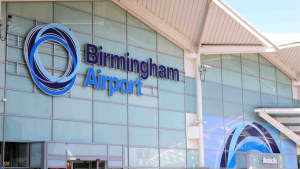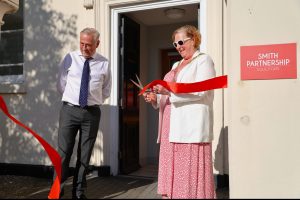Government gives green light to HS2

THE Government has given the green light for the development of the £17bn high speed rail link between Birmingham and London.
The decision, announced by Transport Secretary Justine Greening, had been widely expected. It paves the way for the new HS2 service, which is set to reduce journey times between the first and second cities to 49 minutes.
There has been widespread opposition from residents living close to the route of the line, however, business leaders in the West Midlands have been universally in favour of the proposals since they were first announced.
This was underlined when a group of them put their name to an open letter in the national press last week urging the Government to approve the scheme claiming it would lead to massive economic benefits for the region, including new jobs and investment.
Following today’s announcement Jerry Blackett, chief executive of Birmingham Chamber of Commerce Group (BCCG), said: “This is a fantastic day for the West Midlands. However, the imperative is to press ahead with all speed because delay will simply stall the impetus that today’s announcement has given.”
It is estimated the new service would will create 22,000 jobs within the West Midlands and be worth £1.5bn per year to the regional GDP.
Professor Andrew McNaughton, chief engineer of HS2 Ltd, told business leaders in Birmingham last year there was no alternative to High Speed Rail in terms of relieving capacity on Britain’s overcrowded railway network.
Prof McNaughton, the man advising the Government, said the existing infrastructure would be at full capacity within the next decade and any other schemes for easing transport links were not viable.
Once operational, HS2 is expected to carry around 140,000 passengers a day, way beyond the current network’s capacity.
The new route will revolutionise rail travel in the UK, halving current journey times between Birmingham and London.
It will see Birmingham become the national high speed hub with a major new station in Curzon Street, close to Millennium Point.
The second stage of the £32bn scheme will see the line split north of Lichfield, with new spurs running off to Leeds and Manchester.
In its justification, the Department of Transport report said: “The growing demand for travel on the UK’s intercity rail network means that in the future our key north‑south routes will become increasingly crowded.
“Unless Government takes action, passengers face the very real prospect of more crowded and more unreliable services.
“After reviewing the evidence, the Government has concluded that a national high speed rail network from London to Birmingham, Manchester and Leeds (the Y‑network) would be the best solution for enhancing rail capacity and performance on those key north‑south corridors.
“Not one of the available alternatives could match what high speed rail has to offer.
“Upgrading existing lines cannot provide a long‑term solution to capacity constraints nor will it significantly improve journey times or connectivity. It would also cause substantial disruption as upgrades took place. A new conventional speed line would cost nearly as much as a high speed line but would not provide any step‑change in connectivity so would bring far fewer benefits.”









